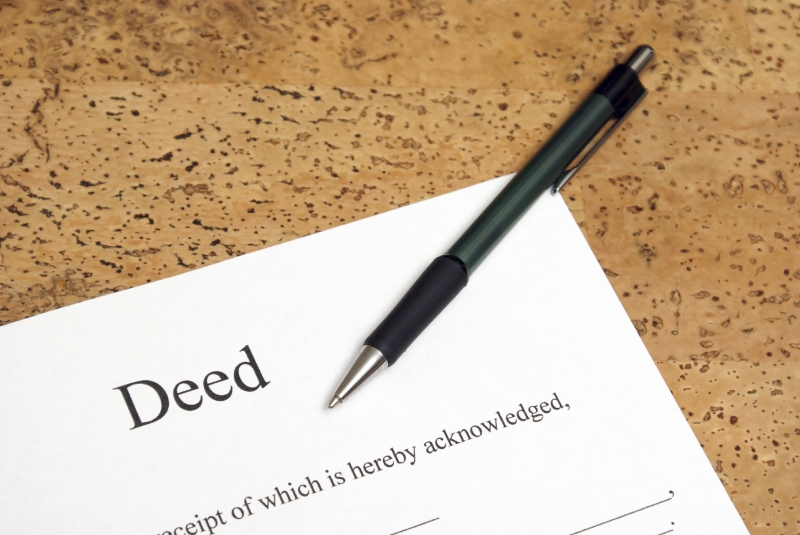A New Deed in California for 2016

On September 9th, 2015, the California Legislature passed bill AB 139 and Gov. Jerry Brown has signed this new legislation which has created a new form of deed for the transfer of real property in California effective 1 January 2016. The new deed is call a “Revocable Transfer on Death” deed (which we will call a revocable TOD deed), and this deed allows an owner of real property to deed it to a named beneficiary without the risk of a lengthy and costly probate proceeding or the requirement for formal estate planning documents.
Bill AB 139
The author of AB 139 wrote this: “The most common form of real property transfer upon death, a will, must pass through probate, a lengthy legal process… The process is often grueling, can take up to a year, and often results in statutory probate fees in the thousands of dollars. Similarly, establishment of a revocable trust can cost upwards of $2,000. For seniors and individuals whose estate consists primarily of the home, the money to establish a trust is out of the question. [The] revocable transfer on death deed (revocable TOD deed) is the most simple and inexpensive transfer mechanism on the market today. Furthermore, it may be the only tool available to unmarried homeowners who wish to leave their property to a lifelong partner, family member, friend, or loved one upon death, but who cannot afford to set up a trust.”
Thus, the background on the purpose of a TOD is that it will save both the homeowner and beneficiary time and money and ensures their final wishes are carried out without excessive legal costs. It is interesting to note that more than half the states in the United States have this option for transferring of real estate and each state’s laws are slightly different but the purpose is the same.
The more common ways an owner can transfer real property is by a will, creation of a trust, or by owning the property in joint tenancy with right of survivorship or as community property with right of survivorship.
TOD deed features
Some of the basic features regarding this new revocable TOD deeds are:
- Applicable property types are one to four residential dwelling units, condominium units, or not more than 40 acres of agricultural land with a single-family residence.
- A revocable TOD deed is not effective unless the transferor signs and dates the deed before a notary public.
- The deed does not need to be delivered to the beneficiary.
- The deed must be recorded 60 days or less from the time it is signed.
- The deed may be revoked by the transferor at any time and does not become effective until your death.
FAQs
With this new type of deed, there are lots of questions and the Legislation has basically created a FAQ page (Frequently Asked Questions) on its website to answer many of the questions generated by this new deed. For example, one of the awkward features of this new deed is that the person granting the real property may give out more than one revocable TOD deed in his/her lifetime. The new law states that the deed with effect will be the one which has the most recent recording date. Additionally, if the person named in the deed dies before the person who is giving the property, then the deed is simply not effective and has no effect. And there can be more than one beneficiary listed in the revocable TOD deed as the law will simply split the property ownership equally among all the named beneficiaries.
If the California Legislature does not re-authorize the law that created this new revocable TOD deed, then it will no longer be valid after 2021 (all deeds created before this date will remain valid). While this new form of deed may be helpful to some, it certainly requires seeking guidance from your real estate professional.
This article is meant to be for informational purposes only and is not intended to be legal advice and you are strongly advised to speak to your attorney or other legal professional for advice and counsel when wanting to use this type of deed in California.


